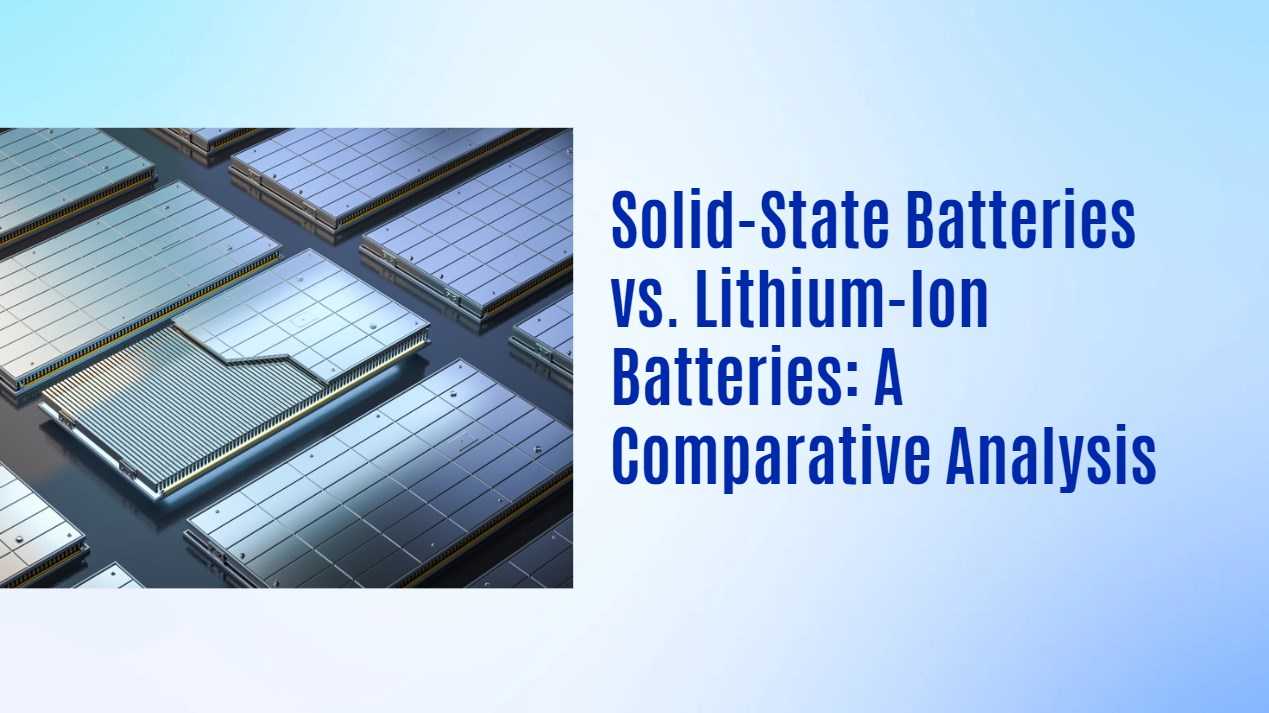Solid-state batteries represent a significant advancement over traditional lithium-ion batteries, offering enhanced safety, higher energy density, and faster charging capabilities. However, they also face challenges such as higher manufacturing costs and technical hurdles that must be addressed before widespread adoption can occur.
What Are Solid-State Batteries?
Solid-state batteries utilize a solid electrolyte instead of a liquid one, which allows for greater energy density—potentially exceeding 500 Wh/kg compared to roughly 250 Wh/kg for conventional lithium-ion batteries. This structure not only enhances energy storage but also significantly reduces risks associated with flammability and thermal runaway.Characteristics of Solid-State Batteries
| Feature | Specification |
|---|---|
| Energy Density | Up to 500 Wh/kg |
| Safety | Reduced risk of fire |
| Charging Speed | Faster than lithium-ion |
| Cycle Life | Potentially longer than lithium-ion |
What Are Lithium-Ion Batteries?
Lithium-ion batteries are widely used across various applications due to their established technology and relatively low cost. They consist of liquid electrolytes that facilitate ion movement between the anode and cathode during charge and discharge cycles. While they are effective for many uses, they do have limitations in terms of energy density and safety.Characteristics of Lithium-Ion Batteries
| Feature | Specification |
|---|---|
| Energy Density | 150 – 250 Wh/kg |
| Safety | Prone to overheating |
| Charging Speed | Moderate |
| Cycle Life | Generally shorter than solid-state |
How Do Solid-State Batteries Compare to Lithium-Ion Batteries?
When comparing solid-state batteries to lithium-ion counterparts:
- Energy Density: Solid-state batteries can store more energy in a smaller volume.
- Safety: The absence of flammable liquid electrolytes makes solid-state batteries inherently safer.
- Charging Speed: They can recharge faster due to improved ionic conductivity.
- Manufacturing Complexity: Solid-state technology is currently more complex and expensive to produce than lithium-ion technology.
What Are the Advantages of Solid-State Batteries?
The primary advantages include:
- Higher Energy Density: Enables longer-lasting power solutions for devices.
- Enhanced Safety: Lower risk of thermal runaway minimizes fire hazards.
- Longer Lifespan: Potential for more charge-discharge cycles without significant degradation.
- Faster Charging: Can achieve rapid recharges, beneficial for electric vehicles (EVs).
What Are the Disadvantages of Solid-State Batteries?
Despite their benefits, solid-state batteries face challenges:
- High Production Costs: Currently more expensive to manufacture than lithium-ion batteries.
- Technical Challenges: Issues such as dendrite formation can lead to short circuits.
- Limited Commercial Availability: Still largely in development stages with limited market presence.
What Are the Advantages of Lithium-Ion Batteries?
Lithium-ion batteries offer several benefits:
- Lower Manufacturing Costs: Established production processes make them cheaper to produce.
- Widespread Availability: Readily available across various markets.
- Good Energy Density: Sufficient for many applications despite being lower than solid-state options.
What Are the Disadvantages of Lithium-Ion Batteries?
The downsides include:
- Safety Risks: Higher susceptibility to overheating and potential fire hazards.
- Shorter Lifespan: Typically fewer charge cycles compared to solid-state alternatives.
- Environmental Concerns: Issues related to recycling and disposal impact sustainability efforts.
What Applications Are Best Suited for Each Battery Type?
- Solid-State Battery Applications:
- Electric vehicles requiring high safety standards
- Portable electronics needing compact power sources
- Aerospace applications where weight savings are critical
- Lithium-Ion Battery Applications:
- Consumer electronics like smartphones and laptops
- Energy storage systems for renewable energy
- Electric bicycles where cost-effectiveness is essential
How Do Manufacturing Costs Compare Between Battery Types?
Manufacturing costs vary significantly:
- Solid-state batteries currently incur higher costs due to advanced materials and complex production processes.
- In contrast, lithium-ion batteries benefit from established supply chains and economies of scale that reduce their overall cost.
What Is the Environmental Impact of Solid-State vs. Lithium-Ion Batteries?
The environmental implications differ notably:
- Solid-State Impact: Potentially lower carbon footprint due to fewer materials used; however, production processes still need optimization.
- Lithium-Ion Impact: More established recycling programs exist but face challenges related to resource extraction and disposal methods.
How Is Research Advancing in Solid-State Battery Technology?
Research is rapidly progressing in solid-state technology:
- Innovations aim at improving ionic conductivity through novel materials.
- Efforts are underway to enhance scalability for mass production.
- Ongoing studies focus on mitigating issues related to dendrite formation and electrolyte stability.
Expert Views
“Solid-state battery technology represents a transformative leap forward in energy storage,” notes Dr. Emily Carter, an expert in battery research at Tech Innovations Lab. “While challenges remain, advancements in materials science are paving the way for safer, more efficient battery solutions that could redefine electric mobility.”
FAQ Section
- What are solid-state batteries?
Solid-state batteries use a solid electrolyte instead of a liquid one, offering higher energy density and improved safety features compared to lithium-ion batteries. - How do solid-state batteries compare with lithium-ion batteries?
Solid-state batteries generally provide greater energy density, faster charging times, and enhanced safety but come with higher production costs and technical challenges. - What are the advantages of lithium-ion batteries?
Lithium-ion batteries have lower manufacturing costs, established production methods, and widespread availability across various applications. - What applications are best suited for each battery type?
Solid-state batteries excel in electric vehicles and portable devices needing high safety; lithium-ion is prevalent in consumer electronics like smartphones. - How is research advancing in solid-state battery technology?
Research focuses on improving ionic conductivity, enhancing scalability for production, and addressing issues like dendrite formation for better performance and longevity.
EV Battery: Lithium VS Solid State




